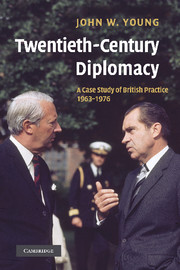Book contents
5 - Special missions
Published online by Cambridge University Press: 30 June 2009
Summary
Sent to the Lands of Dawn on an envoy's duty
To weave, for the sake of all, a tranquil work of peace
MaximianusMaximianus wrote his poem around the year 500 AD, not in celebration of his diplomatic efforts, but in regret over a love affair while in the imperial capital, Constantinople. His example nonetheless serves as a warning of the dangers that might face envoys: at that time they lost their divinely protected status if they committed adultery. In the ancient and medieval periods permanent embassies to another country were unknown, unless one counts the long stays of papal representatives in Constantinople. One-off, special missions were the norm, the envoys often travelling great distances through dangerous territory, sometimes taking months to report back, all of which made diplomatic exchanges a slow business. Only in the wake of Italian innovations during the fifteenth century did the ‘resident embassy’ become an essential feature of diplomacy. It brought certain advantages over special missions. Permanent ambassadors could collect much fuller information on countries in which they were based, mastering the local language and customs, familiarising themselves with the workings of government and building relationships with key individuals.
- Type
- Chapter
- Information
- Twentieth-Century DiplomacyA Case Study of British Practice, 1963–1976, pp. 87 - 114Publisher: Cambridge University PressPrint publication year: 2008



